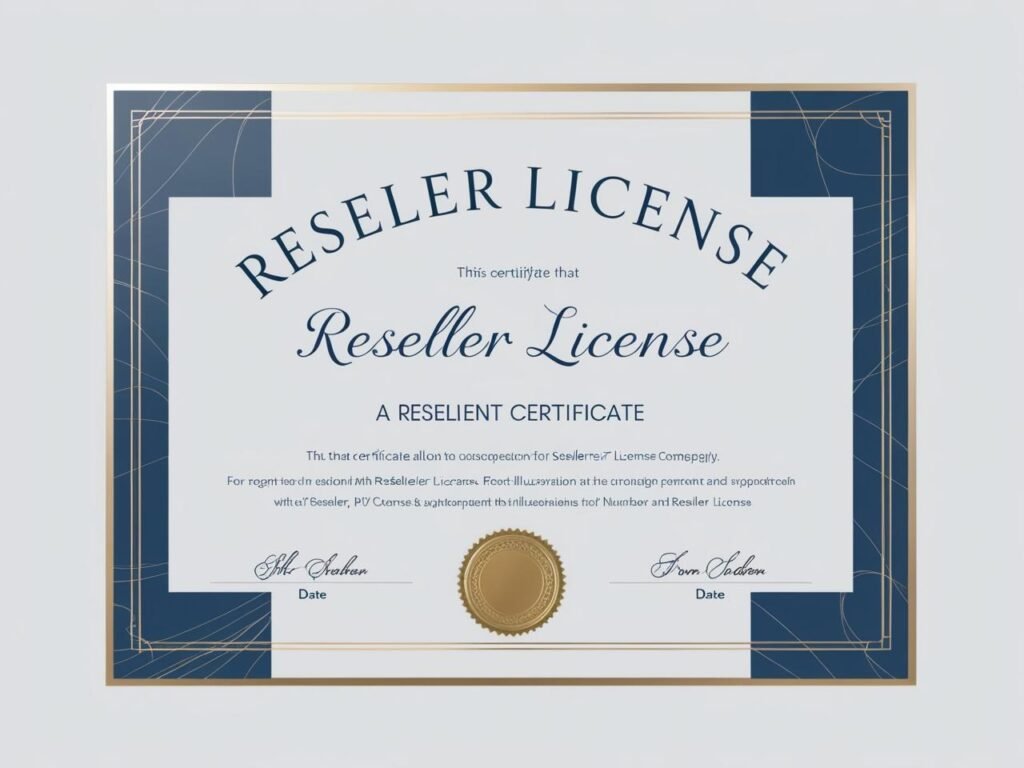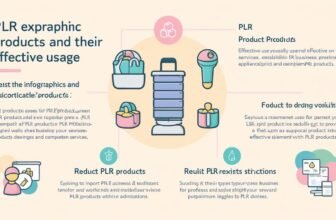

What is a Reseller License?
A reseller license, often referred to as a resale certificate or seller’s permit, is a legal authorization that allows businesses to purchase goods for resale without paying sales tax on those products at the time of purchase. This license is crucial for individuals or companies intending to buy products from wholesalers or manufacturers and then sell them directly to consumers or other businesses. By obtaining a reseller license, sellers can streamline their purchasing process, enabling them to manage their inventory and cash flow more effectively.
Unlike other business licenses, which are primarily focused on licensing a business to operate within a specific industry or location, a reseller license has a narrower scope. It specifically addresses the buying and selling of goods, granting the holder the legal right to purchase items tax-exempt. Each state in the United States has its own distinct requirements and processes for obtaining a reseller license, often necessitating that sellers provide proof of business registration, tax identification numbers, and sometimes even business plans.
The application process typically involves submitting a form to the appropriate state authorities, which may include local tax offices. Once approved, the reseller license must be displayed prominently in the business and renewed periodically, depending on state regulations. Businesses commonly requiring a resale certificate include retail stores, e-commerce companies, and wholesalers, among others. It is important to note that operating without a reseller license can lead to significant penalties, including fines and back taxes owed, underscoring the importance for sellers to comply with local tax laws and obtain the appropriate licenses prior to engaging in resale activities.
Importance of a Reseller License

A reseller license is a crucial component in the operational framework of businesses that engage in reselling goods. This legal declaration not only outlines a company’s legitimacy but also establishes a foundation of trust with suppliers and customers. Vendors are more likely to collaborate with businesses that possess proper licensing, as it demonstrates adherence to regulatory and compliance standards. This mutual respect facilitates smoother transactions and often results in better pricing agreements, ultimately benefiting both parties.
From a compliance standpoint, a reseller license ensures that businesses are abiding by state and federal tax regulations. Many jurisdictions require individuals or entities that purchase goods for resale to obtain such licenses, which often allow them to buy inventory without paying sales tax upfront. This tax exemption applies when the items are intended for resale rather than personal use. In this respect, a reseller license serves as a critical tool for efficient cash flow management, allowing businesses to allocate funds more effectively while remaining compliant with tax obligations.
Moreover, operating without a reseller license can result in significant repercussions, including fines and potential legal action. Businesses may face audits that could unveil lapses in compliance, leading to penalties that can greatly impact their financial stability. Additionally, in a crowded marketplace, lacking the proper licensing can harm a company’s reputation; customers tend to favor established and compliant sellers over those operating in the shadows of legality. Therefore, having a reseller license is not merely a bureaucratic step; it is an essential element that fortifies a business’s credibility and operational integrity.
Benefits of Having a Reseller License
Obtaining a reseller license offers numerous advantages that significantly benefit sellers in the marketplace. Primarily, a reseller license allows individuals and businesses to purchase products at wholesale prices. This access to wholesale pricing is crucial as it enables sellers to decrease their initial investment costs, setting the stage for an increased profit margin upon resale. By buying products in larger quantities and at reduced rates, resellers are better positioned to outshine their competitors, offering competitive pricing or higher-quality offerings.
Additionally, holding a reseller license facilitates access to a broader range of products and services. Suppliers are more likely to work with licensed resellers, as it ensures they are dealing with legitimate businesses. This relationship fosters opportunities for sellers to diversify their offerings, tailoring their inventory to meet the specific needs of their target market. Thus, a reseller license not only broadens the product spectrum but also allows sellers to adapt more readily to changing consumer demands.
Furthermore, a reseller license is instrumental in establishing a legitimate brand. By obtaining this license, sellers signal to consumers that they are operating within the legal framework of their industry. This legitimacy enhances credibility, instilling trust in customers who may be wary of unlicensed entities. Over time, this trust can significantly contribute to brand loyalty, reinforcing the seller’s market presence.
In essence, a reseller license opens doors to enhanced supplier relationships. Licensed resellers often gain access to exclusive deals, promotions, and support from suppliers, which can further improve their business operations. In conclusion, the benefits of having a reseller license are multifaceted, from financial advantages such as better pricing to the strategic development of a reputable brand presence in the marketplace.
How to Obtain a Reseller License
Acquiring a reseller license is an essential step for individuals or businesses looking to engage in resale activities. The process, however, can vary significantly based on jurisdiction. To begin, it is vital to familiarize yourself with the specific requirements set forth by your state or country. Generally, the application process can be broken down into several key steps.
First, determine the specific type of reseller license you need based on your business model and the products you plan to sell. This ensures that you are applying for the correct license that meets your local regulations. Next, gather the necessary documentation. Common requirements include proof of business registration, tax identification numbers, and personal identification documents. Some states may also require proof of a physical business location or a sales tax permit.
Once you have compiled the required documents, the next step is to complete the application form. Many states offer the application form online, making the process more efficient. Be sure to fill out all sections accurately and completely to avoid delays in the approval process. After submitting your application, it is advisable to keep track of the application status, as processing times can vary. Depending on the jurisdiction, you may expect to wait anywhere from a few days to several weeks for approval.
Additionally, seeking assistance from local business organizations or legal advisors can be beneficial, especially for first-time applicants. They can provide insights into any potential pitfalls or common mistakes to avoid during the application process. Always remember that maintaining compliance with ongoing regulations is crucial after obtaining your reseller license, as failing to do so can result in fines or the revocation of the license.







